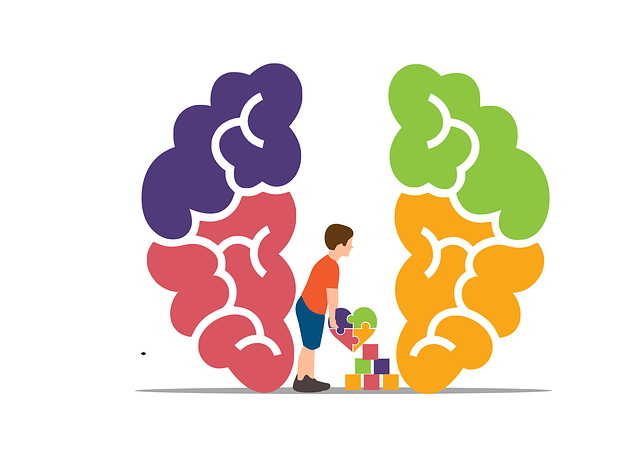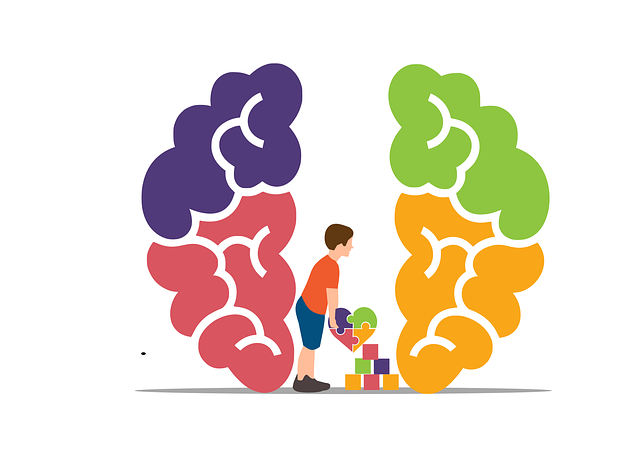In Arvada, a diverse community with a significant Spanish-speaking population, mental wellness program evaluations require tailored, culturally sensitive approaches to ensure accessible care and build trust. Traditional methods may not resonate with non-English speakers. Therefore, professionals must use strategies like empathy training, culturally relevant tools, and language access services (including qualified interpreters) to create safe spaces. Aligned with a Mental Health Policy Analysis approach, these efforts enhance therapeutic offerings, aiming to make programs more inclusive and effective for Spanish-speaking therapy seekers in Arvada Spanish Speaking Therapy.
Mental wellness program evaluations are essential for ensuring effective support, especially within diverse communities like Arvada’s vibrant Spanish-speaking population. This article explores comprehensive evaluation methods tailored to this specific demographic. We delve into culturally sensitive assessment techniques, language accessibility strategies, and identifying barriers to mental health services for Spanish speakers in Arvada. Additionally, we cover program effectiveness measurement through quantitative and qualitative data, continuous improvement processes, and the power of client feedback. By implementing these approaches, mental wellness programs can optimize their interventions, fostering resilience and long-term sustainability.
- Assessment Techniques for Spanish-Speaking Populations in Arvada
- – Culturally sensitive evaluation methods
- – Language accessibility and translation strategies
Assessment Techniques for Spanish-Speaking Populations in Arvada

In Arvada, serving a diverse community with a significant Spanish-speaking population, mental wellness program evaluation requires tailored assessment techniques to ensure cultural competency and accessible care. The traditional methods often used in mental health services might not resonate with individuals from different cultural backgrounds. Therefore, professionals in Arvada must employ strategies that bridge the gap between cultural differences and clinical practice. This involves training staff in empathy building strategies and integrating culturally sensitive tools for evaluation. By doing so, therapists can create a safe and supportive environment, fostering open communication and accurate assessments for Spanish-speaking individuals seeking therapy.
Arvada’s mental health services can benefit from implementing policies that support a Mental Health Policy Analysis and Advocacy approach to address the unique needs of this community. This includes considering burnout prevention strategies for healthcare providers working with Spanish-speaking populations, as cultural sensitivity and language barriers can be emotionally taxing. By incorporating these considerations, Arvada can enhance its therapeutic offerings, making mental wellness programs more inclusive and effective for all residents, especially those who identify as part of the Spanish-speaking community.
– Culturally sensitive evaluation methods

In evaluating mental wellness programs, particularly those catering to diverse communities like Arvada Spanish Speaking Therapy, culturally sensitive methods are paramount. These approaches recognize and respect the unique cultural backgrounds, beliefs, and communication preferences of participants. For example, incorporating Mind Over Matter principles tailored to specific cultures can enhance engagement. By adapting traditional mindfulness meditation practices to resonate with diverse groups, programs can foster a sense of belonging and encourage open dialogue.
Culturally sensitive evaluations also consider language access and preference in therapy sessions. Providing services in multiple languages, like those offered by Arvada Spanish Speaking Therapy, ensures that participants can fully express their thoughts and feelings. This linguistic alignment builds trust and encourages individuals to explore mental wellness openly, potentially leading to better outcomes. Moreover, integrating confidence-boosting activities that are culturally relevant can empower individuals to navigate both personal challenges and cultural expectations with renewed strength and resilience.
– Language accessibility and translation strategies

Effective mental wellness program evaluation requires careful consideration of language accessibility to ensure inclusivity and accurate assessment. Many communities, including Arvada’s Spanish-speaking population, benefit from tailored translation strategies. Qualified interpreters can facilitate one-on-one sessions, enabling participants to openly discuss their experiences and progress in their preferred language. This approach not only respects cultural nuances but also enhances the program’s impact, as research indicates that language accessibility significantly improves self-esteem improvement and emotional regulation among diverse groups.
For instance, when implementing programs like Trauma Support Services, translation services should go beyond literal word-for-word rendering. Cultural sensitivity is crucial to ensure that therapeutic concepts are accurately conveyed. Trained translators can help articulate complex ideas in a way that resonates with participants’ lived experiences, fostering deeper engagement and more meaningful outcomes, such as enhanced emotional resilience and overall well-being.
Evaluating mental wellness programs, especially within diverse communities like Arvada’s Spanish-speaking populations, requires culturally sensitive techniques and language accessibility. By implementing these strategies, therapists can ensure effective communication and tailored care, ultimately enhancing the success of therapy for Arvada Spanish-speaking individuals. Incorporating translation services and culturally adapted assessment tools not only improves access to mental health support but also fosters trust and understanding in a crucial step towards better overall well-being.














